7 Wonders Cities expansion review
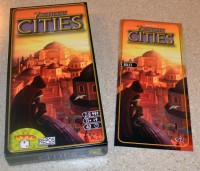
One of mom’s favorite games is 7 Wonders. In fact, she placed it 2nd on her recent list of Top 12 Family Board Games.
So is it any wonder that we’d pick up a copy of an expansion for 7 Wonders?
If mom loves a game, we’re definitely going to get it out often. Because when choosing what game to play, you need to select one that the players will enjoy. So if we want mom to sit down and play, then we need to pick one she’ll enjoy. And 7 Wonders is that kind of game.
When it came time to choose an expansion for 7 Wonders, we had two choices: Leaders or Cities.
After looking at what each added to the game, dad decided to buy a copy of 7 Wonders: Cities.
What’s the draw for 7 Wonders: Cities?
The biggest draw for 7 Wonders: Cities was the addition of a few elements that looked like they’d add some cool twists to the game, namely Debt and Diplomacy. And they show up on some of the 27 new Black Age cards (9 per Age).
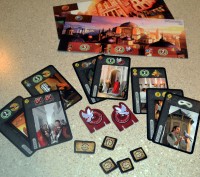
Debt
With the new Age cards added to the game, players can now lose money. A number of the new cards have a new symbol that causes the other players to discard coin. For example, when a player adds the Lair to their civilization, the other players all have to discard 2 coin. Ouch.
The debt comes into account after players have played their cards and settled the purchasing of resources from neighbors. So whereas they may have been fine up front, once they pay a neighbor and are down coins for that purchase, then they’re hit with resolving this symbol.
And if a player is out of coin and is forced to pay coin, that player will have to take a Debt token for each unpaid coin. And that’s not good because Debt tokens are negative victory points at the end of the game. Whereas at the end of the game players can score 1 VP for each 3 coin they have, if they go below zero and into Debt, that’s a straight 1 for 1 in the hole on the VP scale.
But on the other hand, if a player is forced to pay 2 coin and they have 2 coin they could pay, but would rather take on Debt, they can choose to do so. This may help if they really need those 2 coin to buy something later that will offset the negative VP and give them an upside.
The key point is that this element of Debt adds a great wrinkle to the game to watch out for and make decisions around. Nice.
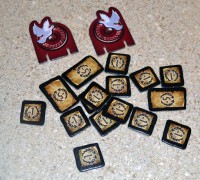
Diplomacy
Just when you think it’s all nastiness with Debt coming into play, enter Diplomacy. Diplomacy is all about friendliness (or so you’d think).
Some of the new Age cards include a Diplomacy symbol. When those cards are played, that player takes a Diplomacy token and places it on their board. At the end of the Age when military might is compared between neighbors, they abstain from the conflict. And when they sit out the conflict, it means their two neighbors now battle each other instead.
Another cool twist to the game!
The catch is that at the end of the Age during the conflict, the player has to discard their token and sit out the conflict. So if they end up having more military might than their neighbors, they can’t decide to enter the conflict anyway. They have to sit it out peacefully.
It’s especially fun when you can play a diplomacy card as the last card in an Age and surprise your neighbors.
Not all cards in play
Another cool element of these additional black Age cards is that they are randomly added into play.
Whereas with the base game, the cards are separated at the beginning based on the number of players. If you’re playing with just 5 players, any cards with a “6+” or “7+” at the bottom are left out.
While that still occurs for the standard cards, the black cards don’t have numbers at the bottom. Instead, you add into each Age deck only as many black cards as there are players. So if there are 5 players, 5 random black cards will be added to each corresponding Age.
Likewise, the 3 new Guild cards are added to the game, but the number of Guild cards to add in the 3rd Age doesn’t change. So you never really know what to expect. It could end up that Diplomacy cards don’t make the cut and never come into play.
It all adds to the mixture of making each game play differently than the last. Just enough to keep it all interesting!
Final Verdict
All of the new cards in the Cities expansion have Mask symbols at the bottom. This makes it very easy to identify the Cities cards. So if you’d like to play a game without the expansion, it’s simple to do. Just leave them out.
Of course, in our family more often then not we’re going to have the Cities cards in the mix.
The Mask symbol is a great one for this expansion because the cards that are added do feel very sneaky at times. Great for new flavor to the game.
But we mostly like the Cities expansion because of the added variety that these new elements add and the additional decisions that need to be made.
(As we haven’t played the 7 Wonders: Leaders expansion yet, we haven’t played with the 6 new Leader cards that come with Cities either. But we know we’ve got that option should we get a copy of Leaders.)
Summary of Added components:
- 2 Wonder boards and cards (Byzantium, Petra)
- 9 Age I, Age II, and Age III cards
- 3 Guild cards
- 6 Leader cards
- 31 Debt tokens
- 3 Diplomacy tokens
- 1 score pad
Other family card games you might like:

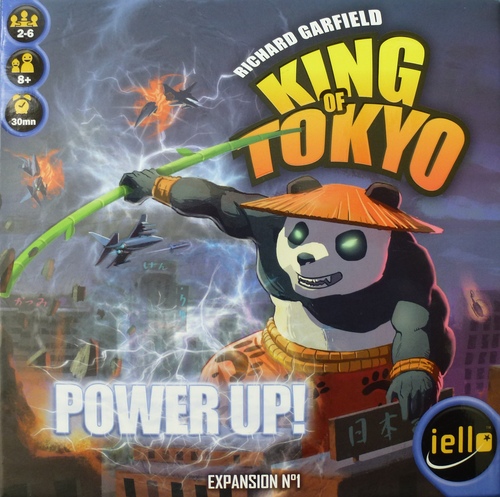
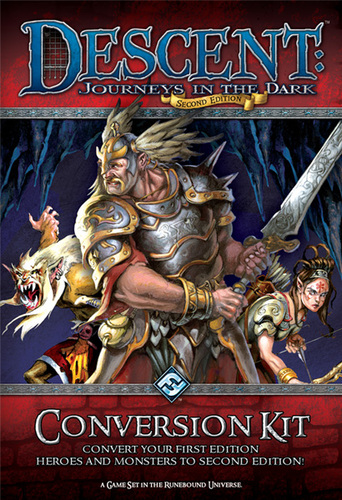
Discovered your site a few months back. Love it! Keep up the great work!
We picked up Cities a couple of months ago and have played 7 Wonders with it ever since. Really like the additional random factor it adds. Some games we end up playing the majority of the black cards that were dealt and other times only a few trickle into play – just totally up to the strategy of the players.
As much as we like Cities I would have to say we like Leaders even more. The variety of play options that they add is fantastic. Lots of strategy choices available – if you can pull it off with the regular cards that come into play. Pick up a copy of that expansion too – it adds multiple dimensions to an already great game.
— Eric D
Eric – Thanks for the hearty recommendation for Leaders.
Like Eric, I also love your site and the Cities expansion to 7 wonders. That said, I disagree with him about Leaders. While Cities adds an element of random chance that can be fun and interesting, I think that Leaders does the opposite. It all but encourages you to select a strategy and stick with it through the game so I think it produces games that are more lopsided (players are more likely to hog one type of card). There are also some leader cards that are clearly a lot better than others – for example one that enables you to buy any resource from the bank for one coin. Further, the wonders it adds aren’t all that interesting (one impacts the leaders, one has a very expensive side B component that offers a lot of victory points). I just saw a new wonder expansion at the game store about 2 weeks ago, I’m looking forward to checking it out.
Hello. I just bought 7 Wonders Cities. I don’t have Leaders. Am I correct in understanding that the 6 leader cards don’t come into play with Cities? There are no instructions on how to use these 6 cards.
Thanks
Shlah – you are correct. Those 6 cards are additional Leaders cards to expand upon the Leaders expansion. Since Leaders was released first, additional Leaders cards were added to the next expansion – Cities. We’re like you in that we don’t have Leaders, so those 6 cards stay in the box. A friend has Leaders and we’ve played with the Leaders expansion with him. It adds another twist to the game that we’ve enjoyed as well.
Thanks Trent. We just played it using the Leader cards anyway just for fun – there were only three of us, so I dealt each person 2 Leader cards and we played one at the beginning of Age I and the other at the beginning of Age III. I also gave each player 6 coins at the beginning of the game. Worked out well. Not sure what I’d do with more players – maybe just one Leader card per person.
You might want to note that 7 wonders Cities has a black card that denotes a slave market. This allows a player to profit using this card. Just want to caution you – this may not sit well as a family game – especially if the card is in play.